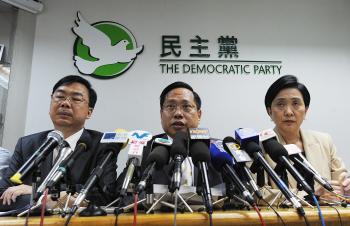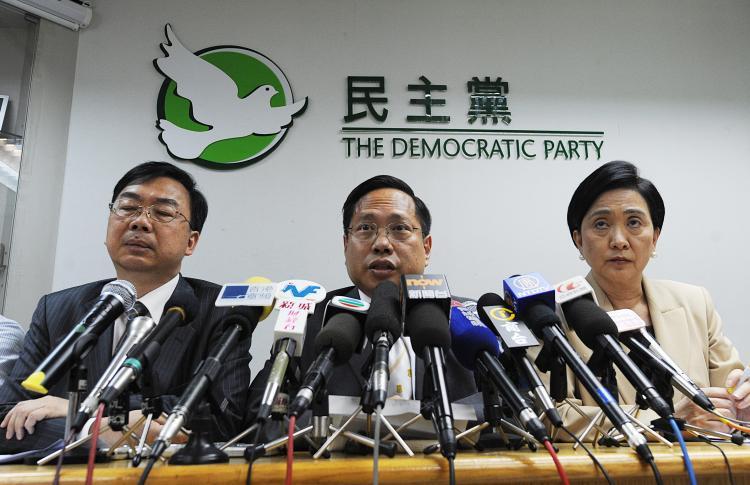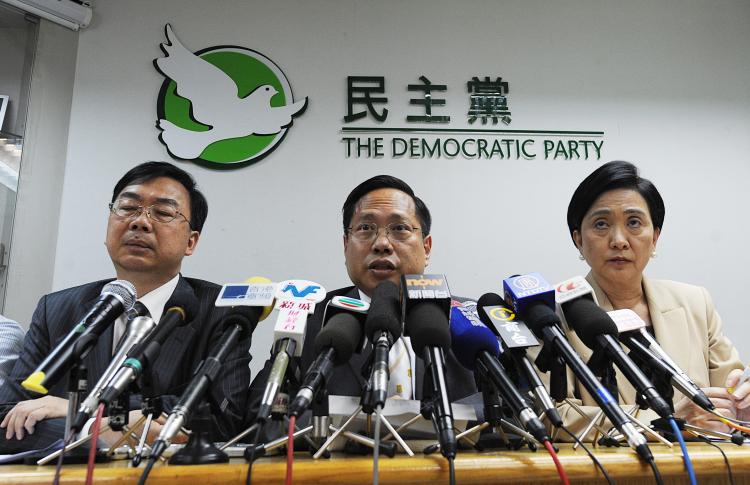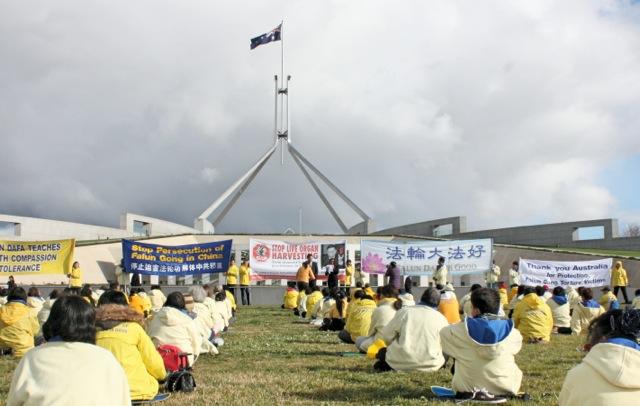Democracy’s Next Stand in Hong Kong
The struggle for democracy in Hong Kong has hit a new level, as clashes erupted over proposed electoral reforms.

Democratic Party Chairman Albert Ho (C) speaks at a news conference in Hong Kong on May 24. The struggle for democracy in Hong Kong has hit a new level, as clashes erupted over proposed electoral reform. Mike Clarke/Getty Images
|Updated:




